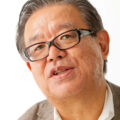What Tokyo 2020 Was Really For: Host Town Exchanges and “Promoting a Peaceful Society”
Sasao Shinta, Associate Professor, Tokyo Women’s College of Physical Education & Tokyo
Women’s Junior College of Physical Education
The Olympic Charter lists “promoting a peaceful society” as its goal. The Host Town Initiative works to achieve that goal by encouraging mutually beneficial exchanges between participant countries and regions and local municipalities. I would like to detail those ideas and their actual implementation, then end by discussing my hopes for the future.
Why We Even Have the Olympics

Prof. Sasao Shinta
This article will review the 2020 Tokyo Olympic and Paralympic Games (hereinafter, “Tokyo 2020”) with a focus on host towns, one initiative enacted during Tokyo 2020.
What is the purpose of the Olympics? In 2021, with Tokyo 2020 right around the corner, many people in Japan—especially those in Tokyo—undoubtedly thought hard upon this question. I doubt many people knew this before Tokyo 2020, but the goal of the quadrennial Olympic and Paralympic Games is not to provide a stage for the athletes of the world to demonstrate their exceptional physical abilities, but rather to embody the idea of Olympism. The Fundamental Principles of Olympism 2, Olympic Charter, clearly states: “The goal of Olympism is to place sport at the service of the harmonious development of humankind, with a view to promoting a peaceful society concerned with the preservation of human dignity.”
Other competitions have enacted a variety of initiatives towards achieving the Olympic Truce Resolution and “promoting a peaceful society.” In addition to these existing efforts, Tokyo 2020 used the Host Town Initiative to achieve “promoting a peaceful society.”
Two Significances of the Host Town Initiative
The goal of the Host Town Initiative was to contribute to making Japan a “Sports Nation,” encourage globalization, revitalize local areas, and promote inbound tourism by having the government certify municipalities to act as Host Towns to promote personal, economic, and cultural exchanges with participant countries and regions for Tokyo 2020. As the entity in charge of promoting these exchanges, the Cabinet Secretariat of the Headquarters for the Tokyo 2020 Olympic and Paralympic Games (hereinafter, the “Headquarters”) offered tremendous deals to each municipality, covering half the costs for exchange initiatives through a special local grant tax.
This Host Town Initiative was modeled after the “one school one country” initiative[1] developed for the 1998 Nagano Winter Olympics and the initiatives carried out by each municipality during the 2002 FIFA World Cup Korea/Japan. The “one school one country” initiative in particular is known to have originated in Japan and other host cities and nations have carried out similar initiatives since Sydney 2000. The 2019 Rugby World Cup, also held in Japan, saw numerous exchanges between squads from participating countries and regions and the residents of the municipalities hosting the pre-Games training camps.
A direct objective of the Host Town Initiative was to encourage international exchanges within each municipality and contribute to “promoting a peaceful society,” as well as have the Japanese people feel like Tokyo 2020 was an Olympics for all Japan. We can call that feeling the “relevance” for the entire nation. According to Arimoto (2015), even though the Olympics were always going to be held in Tokyo, the symbolism in the slogan “Nippon [Japan] needs the power of this dream now” used on posters during the lead up to Tokyo 2020 shows that Japan used strategic guidance starting in the invitation stage to raise awareness of the Olympics nationwide. Additionally, according to an analysis of government documents regarding Tokyo 2020 conducted by Sekine and others (2016), the Host Town Initiative specifically was expected to promote a feeling of a national “relevance” after Tokyo was awarded host city for the Games. That is to say, it was hoped that having each municipality devise their own local revitalization initiatives through the Host Town Initiative would result in each governing body and citizen attaching their own meaning to Tokyo 2020.
In this way, the Host Town Initiative was meant not simply to promote international exchange inside each municipality, but also to act as a device to create a national sense of “relevance” for Tokyo 2020. As of July 13, 2021, almost immediately before Tokyo 2020, a total of 461 host towns and 533 municipalities had registered for 185 participating nations and regions. From Hokkaido in the North to Okinawa’s Miyako island in the South, approximately 30% of all municipalities nationwide had joined this Initiative. It is fair to say that by that point in time, the Host Town Initiative had to some degree achieved its goal of attaching a national “relevance” to Tokyo 2020.
A fair number of examples show how each municipality promoted international exchange with their partner country or region prior to the March 2020 decision to postpone the Games by one year due to the COVID-19 pandemic.[2] However, because exchange events for many municipalities were scheduled to take place immediately before and after Tokyo 2020, many municipalities withdrew over infection risks. They gradually began to cancel pre-Games training camps[3] for athletes and exchanges with each nation and region at the start of 2021, with a flood of cancellations beginning in mid-May.[4]
The Reality of the Exchanges
Even so, Japan decided to move forward with Tokyo 2020 and some municipalities held pre-Games training camps as planned once June arrived. Examples of pre-Games training camps were Ota City (Gunma Prefecture) hosting an Australian team (softball) and Izumisano City (Osaka) hosting some Ugandan teams (boxing, weightlifting, swimming). The former gained attention as the first Japanese city to receive foreign athletes and the city used a robust management system to allow for training matches to be open to the public and hold meet-and-greet events with residents. By comparison, the latter was highly chaotic; multiple people tested positive at the airport, everyone involved with the teams was determined to be high-risk contacts, and one athlete temporarily went missing.
Beyond those two examples, athletes from many nations and regions participated in pre-Games training camps, but public meet-and-greets were constantly being canceled. From an epidemiological standpoint, while public exchanges during practice where athletes trained unmasked present a high infection risk, the risk of infection for short-term exchanges during practice while masked should be low. Regardless, many brief exchange events were canceled. Among this background, municipalities faced significant hurdles in enacting the various measures before and after exchanges, but on top of that, it’s easy to imagine that athletes might deemphasize exchanges with local residents and prioritize training. Though unfortunate for the athletes, the host town exchange, which would have contributed directly to “promoting a peaceful society,” disappeared far too easily under the threat of COVID-19.
Even so, some municipalities were able to hold in-person events with athletes. Most of them were held after Tokyo 2020 finished, like at smaller exchanges with residents held between Eniwa City (Hokkaido) and a Guatemalan team (athletics), Shiroishi City (Miyagi) and a Belarusian team (rhythmic gymnastics), Ryugasaki City (Ibaraki) and an American team (judo), Kita-ku (Tokyo) and a Hungarian team (fencing), Matsukawa Town (Shimoina district, Nagano) and a Costa Rican team (athletics), and Tomi City (Nagano) and a Moldovan team (swimming). In addition to these, Maebashi City (Gunma) began their pre-Games training camp for a South Sudan team (athletics) in November 2019, before the COVID-19 pandemic, and held numerous exchange events. The South Sudan team pre-Games training camps also gained attention for the over 300 million yen in funds it collected from the nation by means of the hometown tax.
In this way, while there were some examples of in-person exchanges with athletes around Tokyo 2020, most host town exchanges had to change the original format of their events, with most exchanges divided into two main types.
The first was an exchange aimed at educating people on the culture of the nation or region instead of direct face-to-face meetings with athletes. One example was a program to provide a meal representative of the respective country or nation for lunch at elementary and middle schools in each municipality to let students learn about the food culture of that nation or region. For example, starting in 2018, Hofu City (Yamaguchi) held a series of cooking classes for residents on food from their partner nation Serbia in addition to periodically providing elementary and middle schools students with Serbian food for school lunch. Additionally, elementary and middle schools in Tamba-Sasayama City (Hyogo), which was the host town for three countries and regions, the Bahamas, Taiwan, and Puerto Rico, created school lunches using representative meals for each of the three countries and provided cross-cultural education and food education for young children and students.
The second method used online video tools to provide exchange opportunities with residents, ambassadors, etc. and athletes from partner nations and regions. One example is the online exchange between Kamaishi City (Iwate) and Australia, which won the Online Exchange Award in the Host Town Summit 2021 that the Headquarters sponsored. Kamaishi and Australia held lively exchanges, such as bi-weekly video message exchanges between middle school students about their daily life and their country’s culture, and local citizens held exchange events with themes covering music, sports, food culture, and more.
Towards Continuous International Exchange
Finally, I would like to point out two aspects of Tokyo 2020; the meaning of the host town exchanges and their hope for the future.
As mentioned above, the initial plan was for athletes to visit host town municipalities before and after Tokyo 2020. Face-to-face meetings with residents were expected to be the main highlight, but most of them did not occur. However, indirect initiatives mentioned above like programs and online exchanges to learn about the partner nation’s or region’s culture could potentially be repeated in the future. In that way, those exchanges could prove superior to physical exchanges with athletes. Online exchanges in particular could be an important byproduct brought about by COVID-19. That is to say, the global spread of COVID-19 has allowed online video tools to penetrate the entire world in a way no one imagined and their significance is vitally important when considering exchanges with people living overseas. Those tools share common hardware prerequisites, but I think we need to continue exploring what is possible on the software end.
My other point involves the “seeds of international exchange” unearthed in preparations for the Host Town Initiative. For example, Ishinomaki City (Miyagi) and Kesennuma City (Miyagi), both municipalities in the Tohoku region which is my field of research, signed host town agreements for Tunisia and Indonesia, respectively. The former began its relationship with Tunisia when a Tunisian student participated in a homestay in Monou Town (merged with Ishinomaki City later) in the 1990s. The town now has both a “Tunisian Street” and a “Carthage Street.” Crews on deep-sea fishing boats in the latter city boast a long-standing relationship with the people of Indonesia and the city has both a strong Indonesian expat community and a mosque and chapel. Both cities recognize their history of exchanges with their partners and signed up to become host towns.
Beyond those two examples, multiple municipalities cited their deep history of exchanges as the impetus for joining the Host Town Initiative. Regardless of any history of exchanges, the sheer number of host towns alone provide a wealth of stories, such as exchanges that started when the town received contributions after the Great East Japan Earthquake of 2011. Figuratively speaking, you could say that the job of the host town initiative was to shine a light on the “seeds of international exchange” planted in the region and water those seeds to make the “flowers” bloom.
The opportunity for in-person exchanges was certainly cut short and the majority of chances to use Tokyo 2020 to make the “flowers of international exchange bloom” have wilted. But without the preparations for the Host Town Initiative, these “seeds of international exchange” would most likely never have reached so many people. In other words, it allowed a vast range of people to feel that international exchange was not some topic involving forever distant lands, but something that lies under the very ground of their day-to-day lives. And that in and of itself is something we can consider as the significance of the Host Town Initiative.
As mentioned above, most of those stupendous chances to meet athletes during Tokyo 2020 did not materialize. Even so, if we treat those events as laying the foundation for continuous international exchange, then the work for the Host Town Initiative was certainly not wasted and Tokyo 2020 doesn’t have to be the only chance to let these “flowers of international exchange” bloom. It let each municipality ask how opportunities like the indirect emergence of a relationship with their partner country or region and the understanding of the “seeds of international exchange” that are rooted in their history will connect to continuous exchanges in their future.
Also, promotion of the host town exchange that has so far been led by the Headquarters is scheduled to be handed off to the Cabinet Secretariat Olympic and Paralympic Legacy Office and related ministries starting in 2022. We must keep an eye on whether the system established by the organizers of Tokyo 2020 will provide support that strengthens international exchanges in each municipality using the momentum they had leading up to Tokyo 2020 or whether they will choose to let that momentum fade.
Note: This research received assistance from the 2019 Tokyo Women’s College of Physical Education Individual Research Promotion Fund as well as Grants-in-aid for Scientific Research of the Japan Society for the Promotion of Science (JSPS) 20K19548.
References:
Arimoto Takeshi (2015) “Resisting the ‘power of the dream’: 2020 Tokyo Olympic and Paralympic Games and hegemony of the city,” Japan Journal of Sport Sociology Vol. 23 (2), pp. 45-60
Ishizaka Yuji (2021) “Coronavirus and the Olympics: Challenges Remaining in Japanese Society,” Jimbun Shoin
Sekine Masatoshi, Kobayashi Tsutomu, Nunome Yasunori, Noguchi Kyoko, Kishi Takumi, Koyama Sanae, Imamura Takayuki (2016) “Tokyo 2020 Olympic and Paralympic Games as a Festival of “Whole Japan”: Outline of measures to revitalize local cities through Host Town Initiative,” Journal of the Chuo University Institute of Health and Sports Science, Vol. 34, pp. 31-35
Sugino Koichi (2021) “Undrawable Legacy of Tokyo Olympics: Urban development and globalization will reach a critical point after Coronavirus,” Nikkei Glocal (information magazine for regional creation),” No. 418, pp. 6-21
Translated from “Tokushu 1—Tokyo gorin towa nandattanoka: ‘Heiwana shakai no suishin’ to hosuto taun koryu (Special Feature 1—What Tokyo 2020 Was Really For: Host Town Exchanges and ‘Promoting a Peaceful Society’),” THE TOSHI MONDAI (Municipal Problems), October 2021, pp. 26–31. (Courtesy of The Tokyo Institute for Municipal Research) [December 2021]
[1] An initiative where each elementary school, junior high school, and special school in Nagano City selected a nation or region and cheered for that nation or region while learning about their culture. According to Ishizaka (2021), as of 2008, 10 years after the 1998 Nagano Winter Olympics, approximately half of schools continued with such activities.
[2] For example, In January 2020, a Tunisian team (swimming) held pre-Games training camps in Ishinomaki City (Miyagi) as well as in-person meetings with elementary schools in the city. The citizens of Ishinomaki rejoiced when Ahmed Ayoub Hafnaoui won the gold medal in the men’s 400 m freestyle at Tokyo 2020.
[3] Reports are often confused, but the Host Town Initiative is an exchange between residents of municipalities and individuals from partner nations and regions participating in Tokyo 2020, including athletes. For this, the conditioning athletes undertake to prepare for the Games is called a pre-Games training camp. Numerous host town municipalities hosted pre-Games training camps in addition to other activities, but many host town municipalities decided to cancel only the pre-Games training camp due to issues with facilities, etc.
[4] As of July 16, 2021, 183 municipalities had abandoned their exchange initiatives (The Nikkei evening edition August 7, 2021), with other cancellations continuing afterwards. And according to the results of a prefecture-wide survey by Nikkei Global, over 40 prefectures replied that their host town activities were significantly impacted by COVID-19. Except for those in Aomori Prefecture, every municipality that answered this question answered that they were in some way affected by COVID-19 (Sugino 2021).
Keywords
- Shinta Sasao
- Tokyo Women’s College of Physical Education
- Tokyo Women’s Junior College of Physical Education
- 2020 Tokyo Olympic and Paralympic Games
- Tokyo 2020
- Olympic Charter
- Host Town Initiative
- Olympic Truce Resolution
- promoting a peaceful society
- one school one country
- pre-Games training camps
- COVID-19
- international exchange




